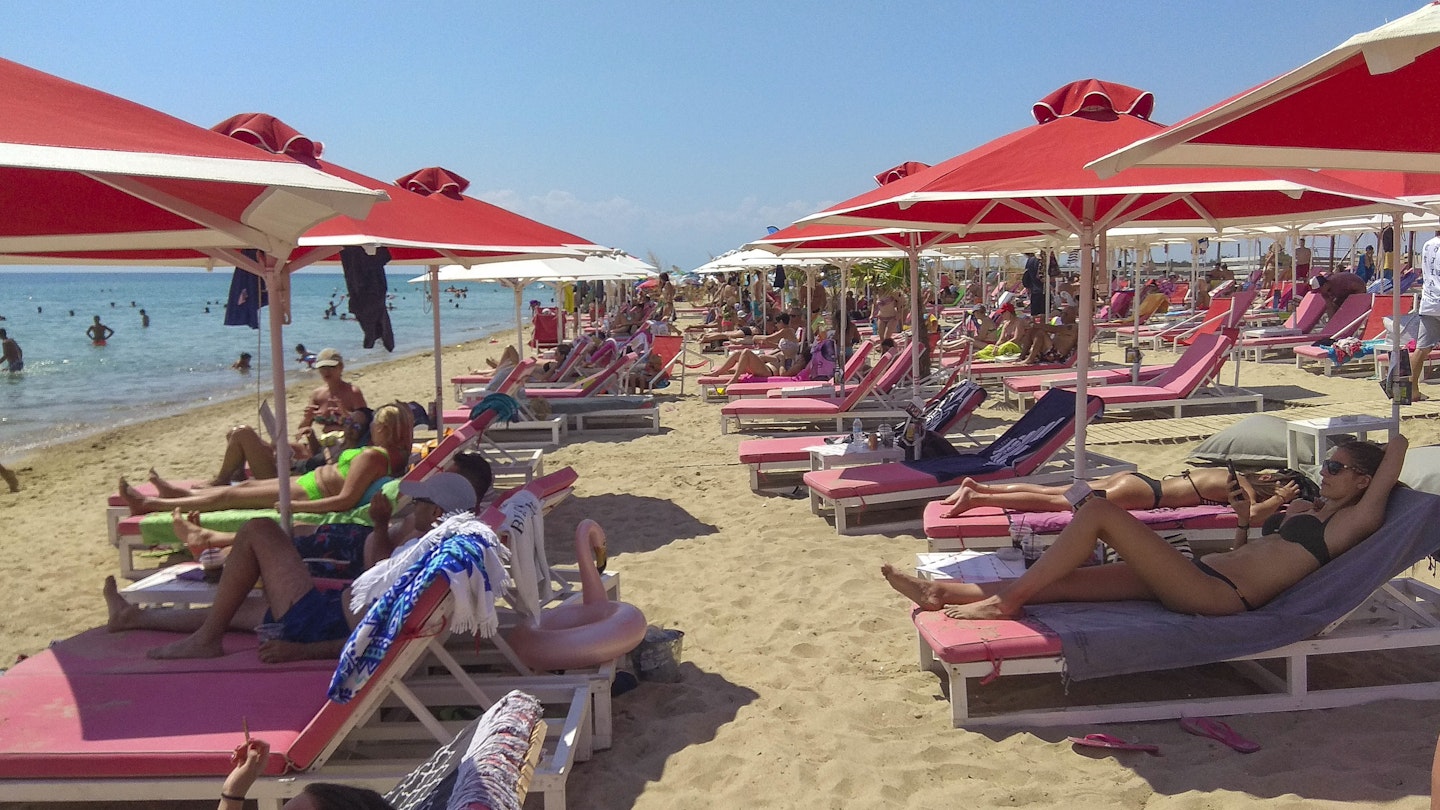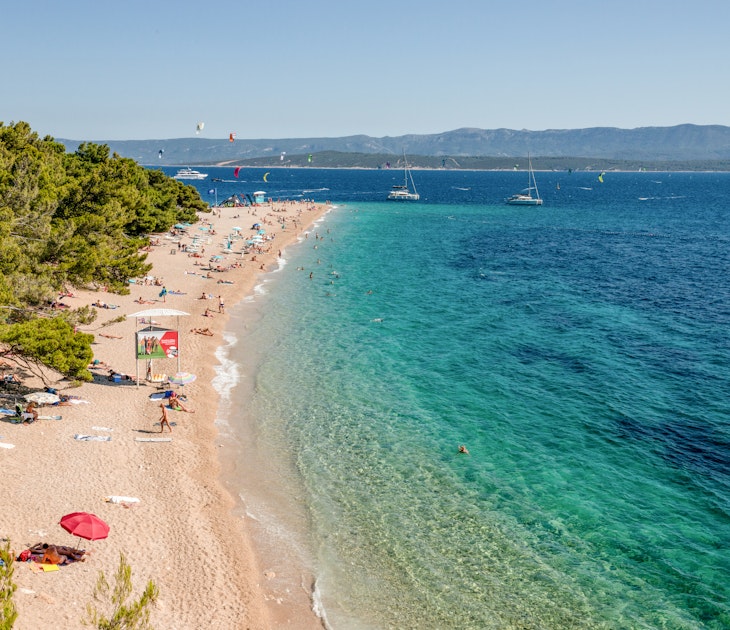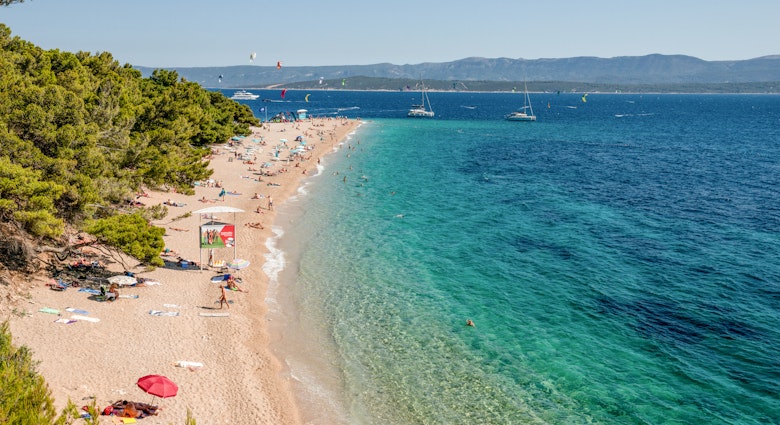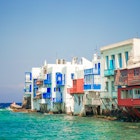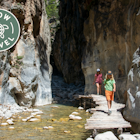Páros embodies all the hallmarks of a quintessential Cyclades island with its white-washed villages, iconic blue-domed churches, harbors fringed with lively tavernas and sun-drenched beaches.
However, one thing it seemingly doesn't have is enough space for beachgoers to enjoy its sandy shores - without forking over anything between €40 and €120 for the privilege.
Amidst Greece's relentless summer heatwave, locals and tourists have been flocking to the coastline, yearning for a spot to cool down. Yet, securing a place to unwind has grown is difficult due to the encroachment of commercial operators who have seized control of many public beach areas, monopolizing them with pricey sun loungers available for hire.
This practice has created a stark contrast between the natural beauty of Páros' beaches and the commercial exploitation that restricts access to them and undermines the very essence of these public spaces which should be open and accessible to all.
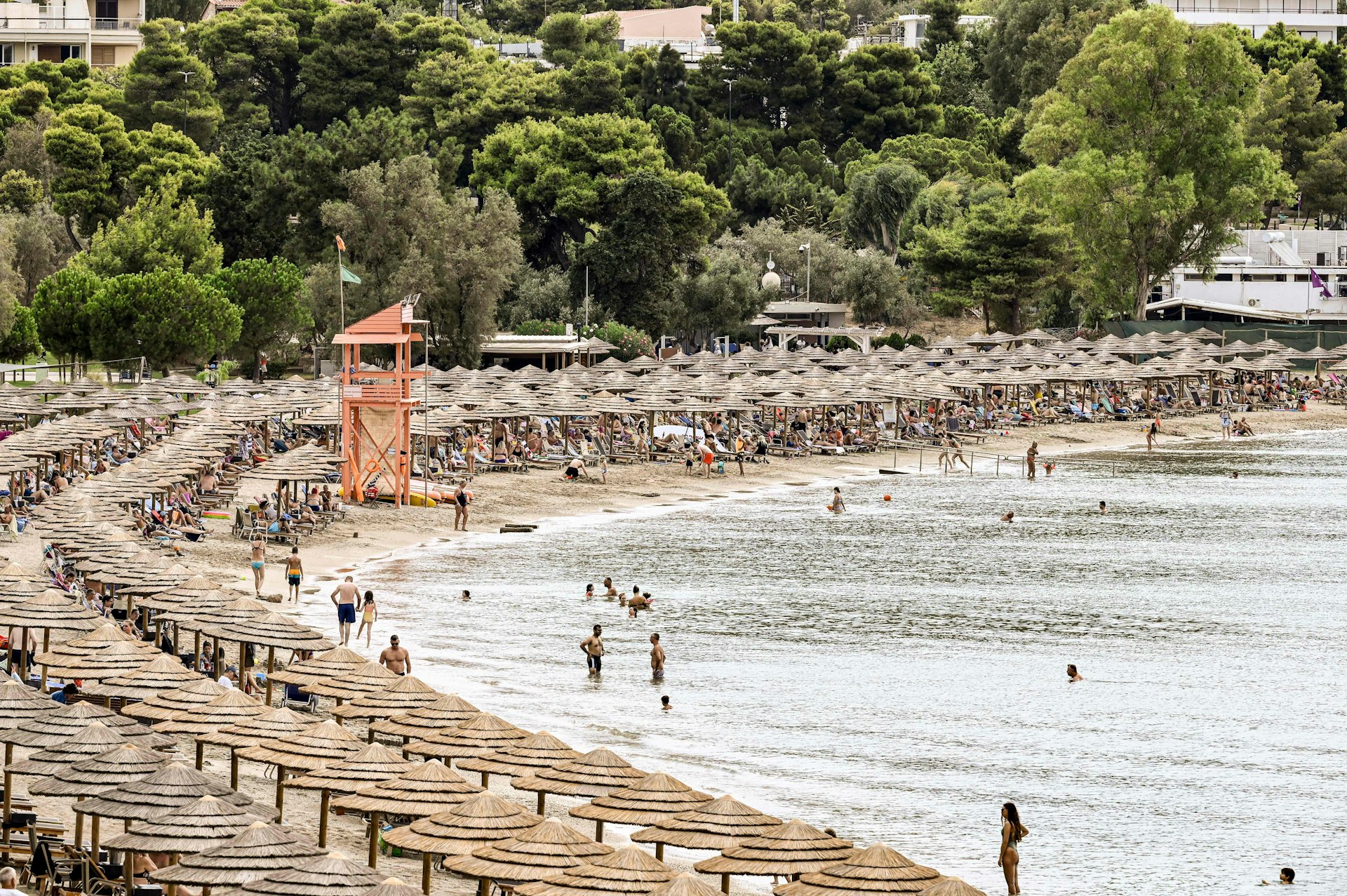
Towel Movement
Fed up, locals are fighting back with a new campaign called the Towel Movement that aims to reclaim Greece's beaches for the public through demonstrations, essentially community gatherings, across its beaches. Campaigners show up with towels in hand, some with protest signs and others with leaflets, and aim to go for a swim in areas they claim have been unlawfully closed off to them.
They argue that unauthorized operators are taking advantage of tourists, charging sky-high prices to rent sun loungers and steadily claiming larger sections of public beaches for their loungers - more than they're legally allowed to occupy.
Campaigners said in a statement: "We claim our right to public space, our right to enjoy our beaches that are encroached upon by greedy, socially irresponsible businessmen who occupy beaches in their entirety or exceed their limits by up to 100 times the area they legally lease."

Illegal occupation
Although Greek beaches are public property, local establishments like restaurants, bars, and hotels are permitted to lease segments of the shoreline. Regulations exist to define the maximum extent of the leased area - about 50% is supposed to remain unoccupied for people who do not wish to pay for special services - but residents claim these businesses are unlawfully expanding their occupied space.
Campaigners also argue that operators act like doormen, prohibiting access to those who refuse to pay by erecting fences that even cut off access to the sea.
"In some cases, they covered 100% of the beach," Nicolas Stephanou, a resident and campaigner in his 70s, told the New York Times. "We feel we're being pushed off the island."
The Save Paros community group uncovered instances where one company charged tourists €60 (£51.68 / $65) for a day's rental of an umbrella and two sunbeds. For an eye-watering €120 (£103.36 / $131), visitors could access a 'VIP area' - which appears to mean little more than front-row access. Back-row access is reportedly about €40 (£31 / $44) for the day.
Save Paros members allege that certain beach clubs have seized control of public car parks too, restricting access to the general public.
Find the perfect Greek island for you

A Greece-wide problem
The issue isn't confined to Paros, with the towel movement spreading to other islands grappling with the privatization of public beaches, including Naxos, Mykonos, Crete, Rhodes, and Santorini.
The Facebook group Save The Beaches of Naxos Now comprises over seven thousand members and aims to highlight the challenges encountered by beachgoers on that island too. Recently, a group member shared an aerial photograph of Plaka Beach, a natural area protected by stricter EU regulations. These regulations stipulate that private operators can only occupy 30% of the shoreline, as opposed to the usual 50%. However, the shared photograph clearly reveals that sun lounge operators have flagrantly exceeded this limit, blatantly disregarding the law and leaving little free space for non-paying visitors to lay down their towels.
Last Wednesday, the Greek newspaper "Hellas Posts" reported that citizens on Naxos had engaged in what they described as "riots" in response to the "unlawful behavior of beach bars" that restricted beach access exclusively to paying customers.
What happens next?
Pressure from campaigners is starting to pay off. Two weeks after a protest took place on the small Santa María beach in Paros, sun loungers vanished from the shoreline, and three beach bars closed down. This followed an investigation that found the bars had encroached beyond legal limits, according to local media.
While these developments appear promising, local residents remain cautious. According to the Guardian, sun loungers disappeared from Naxos' beach during inspections this month but promptly reappeared once the inspectors departed.
10 best places to visit in Greece
Nonetheless, authorities are also taking action. Greek Minister of Finance, Kostis Hatzidakis, has committed to increasing inspections of beach bars in August to identify potential violations and impose sanctions if necessary. He emphasized that they would be objective, stating, "We are not going to favor anyone."
Paros' mayor, Markos Kovaios, speaking to the Greek radio station ERT, acknowledged the seriousness of the problem and expressed determination to address it. He stated, "The problem is real. We want to solve it, and we will not allow arbitrariness on our island. We are reviewing the companies for possible illegal occupation of part of the beach."
In the meantime, activists have pledged to continue protesting on Greece's beaches and raising awareness until stricter regulations are enforced and the beaches become accessible to all.

